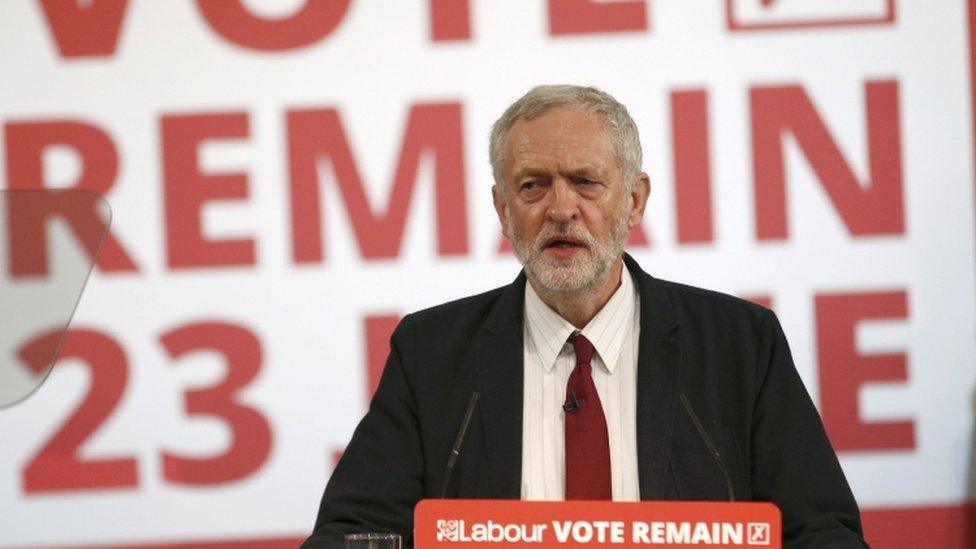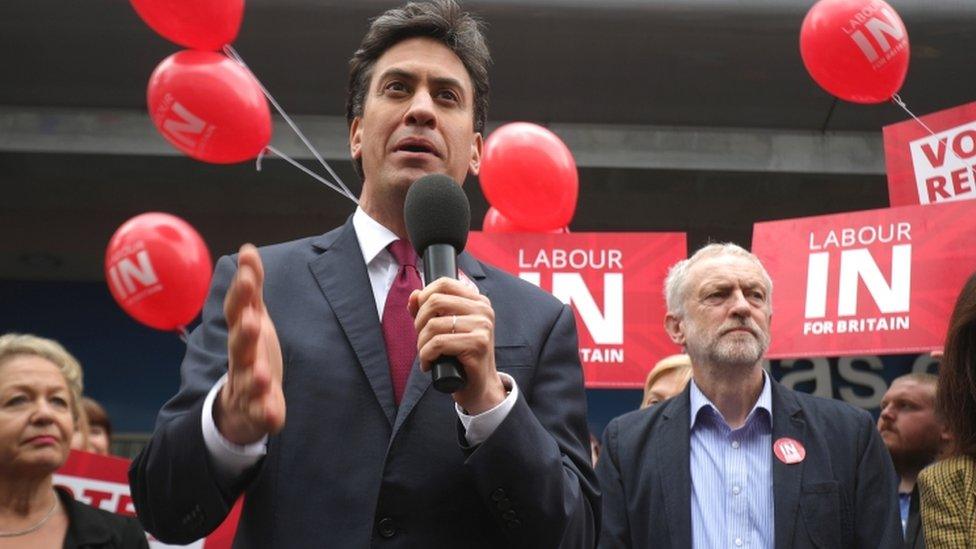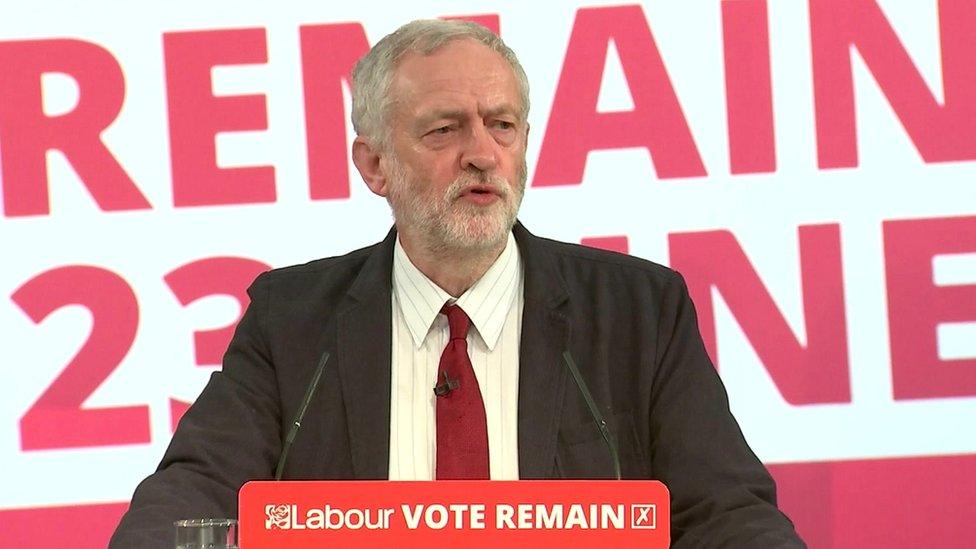Corbyn's late arrival to EU battle
- Published

Plaintive appeals and warnings from pro-European Labour MPs, backed up now by a prominent union leader, that the party must do more to help bring about a vote to remain in the EU have been taken as an implicit rebuke to Jeremy Corbyn.
They are precisely that.
Mutinous grumbling among backbenchers has become part of the background noise to all Labour Party politics at Westminster, constant as the song of crickets on a warm summer evening and so far about as harmless to the leader many of them privately despise.
If this referendum ends in the momentous outcome of a vote to leave - and that is perfectly possible - and Labour MPs at Westminster are left asking themselves and each other who is to blame, many of them will cast wrathful glances in the direction of their leader.
But will their public and private rebukes be fair?
True, Mr Corbyn's efforts to support the Remain campaign have been rather late in coming.
True, his support for a union he's been criticising for most of his political life, if not opposing outright, is heavily qualified.
The most frequently asked question on Twitter after the speech was, apparently: "Was the Jeremy Corbyn speech for the Leave campaign?."
'Message of concern'
But from both sides of this referendum struggle it's become accepted that the Leavers have much the stronger "ground campaign"; the volunteers and organisers knocking on doors, posting leaflets, working the crowd in shopping malls and preparing to get out the vote on polling day.
Often, they are Conservative activists. Sometimes they hail from the ranks of UKIP.
Worryingly for the Remainers, the imbalance also owes something to the Labour Party's inability, or unwillingness in many places, to throw the weight of its activist base into the struggle.

Ed Miliband and Jeremy Corbyn are campaigning for Remain
Almost every Labour MP I talk to tells me almost every other doorstep they visit reveals another message of concern about mass migration, if not an actual promise of a vote to leave.
Critical MPs are quick to blame Mr Corbyn's lack of conviction, as they see it, in making the case to remain.
For all his promises to take his message the length and breadth of the country, with no "no-go areas", he has arguably arrived in the front line of battle a little late in the day.
His latest appearance followed a brief holiday.
Confusion
But has every Labour MP done all they possibly could to harness the efforts of every last sympathetic activist in their constituency?
One Labour MP told me, grudgingly, the answer was no.
Why? Demoralisation, after a period of division and tension since the Labour leader was elected was offered as one reason.
The possibility that Labour MPs have been taken by surprise by the depth of apathy and outright hostility among Labour's natural supporters was sheepishly suggested as another.
There is plenty of evidence that a lot of Labour supporters - no doubt in common with supporters of all parties and none at all - are still confused about the issues.
Remain campaign organisers and MPs I speak to still believe they are best placed to win; that risk aversion and a craving for economic security will carry the day for them.
But in many cases, unmistakeable nervousness about the verdict of the voters is beginning to set in.
If the vote is to leave - with all the potentially cataclysmic political consequences that might follow - and pro-European Labour MPs are left asking who's to blame, maybe, just maybe, some of them need look no further than their own bathroom mirror.
- Published2 June 2016
